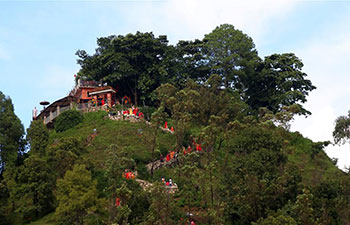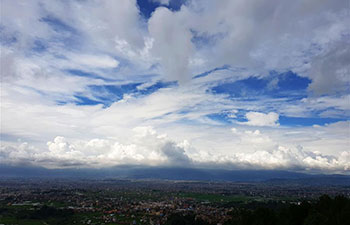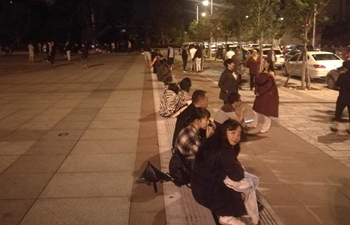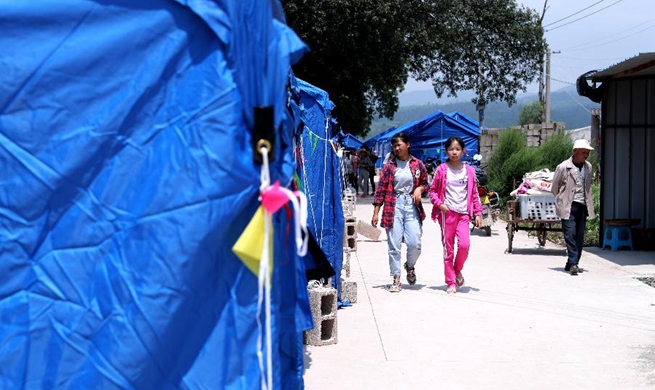WASHINGTON, Aug. 14 (Xinhua) -- A study published on Tuesday in the journal Immunity revealed how vegetables like kale, cabbage and broccoli help to maintain a healthy gut and prevent colon cancer.
Researchers from the Francis Crick Institute showed that mice fed on a diet rich in indole-3-carbinol (I3C), a chemical produced when people digest vegetables from the Brassica genus, were protected from gut inflammation and then colon cancer.
This study offered the first concrete evidence that I3C in the diet can activate a protein called the aryl hydrocarbon receptor (AhR), an environmental sensor that passes signals to immune cells and epithelial cells in the gut lining to protect us from inflammatory responses to the trillions of bacteria that live in the gut.
"We studied genetically modified mice that cannot produce or activate AhR in their guts, and found that they readily developed gut inflammation which progressed to colon cancer," said the paper's first author Amina Metidji from the Francis Crick Institute.
"However, when we fed them a diet enriched with I3C, they did not develop inflammation or cancer," said Metidji.
Also, when mice whose cancer was already developing were switched to the I3C-enriched diet, they ended up with significantly fewer tumors and they were more benign, according to the study.
The researchers found that AhR was vital for repairing damaged epithelial cells. Without AhR, intestinal stem cells fail to differentiate into specialized epithelial cells that absorb nutrients or generate protective mucus. Instead, they divide uncontrollably which can ultimately lead to colon cancer.
"These findings are a cause for optimism; while we can't change the genetic factors that increase our risk of cancer, we can probably mitigate these risks by adopting an appropriate diet with plenty of vegetables," said the paper's senior author Gitta Stockinger, Group Leader at the Francis Crick Institute.













